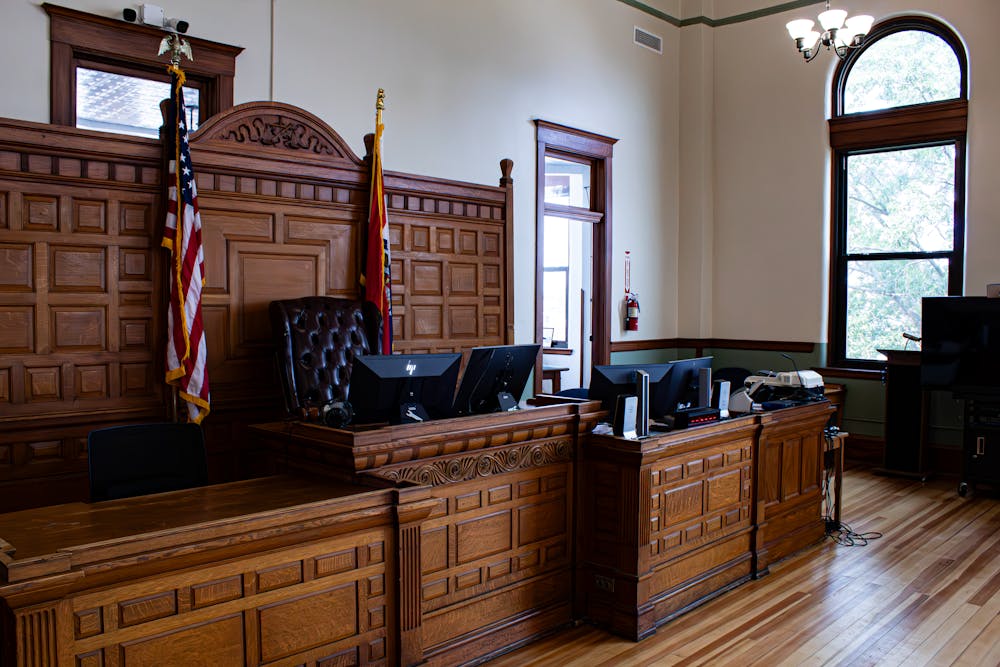Reviews
Best Practices for Fair Legal Representation Today

Court calendars move fast, and public attention moves even faster, especially when a case touches broader safety concerns. Fair representation is not only a courtroom ideal, it is the daily work of choosing the right steps.
Defense teams build trust by showing their standards, from intake to verdict, and not just their outcomes. For New York readers watching high profile charges, the Chabrowe Law Office represents how a firm can carry those standards across both state and federal forums.
Start With Informed Consent
Clients make better choices when they fully understand risks, timelines, and alternatives, spelled out in plain language. A clear engagement letter should list the scope, the fee structure, and expected communication routines. Counsel should also explain collateral issues, such as immigration exposure or licensing concerns, before any major step.
Intake is the moment to set expectations for response times and decision points that will not be delayed. Written schedules for updates, next dates, and filing windows prevent missed opportunities later. Transparency at the start shortens confusion when a deadline arrives without warning.
Advising on early plea offers requires context about sentencing ranges and viable defenses, not just the headline number. Clients should see a summary of probable outcomes and the evidence gaps that might shift those outcomes. Good counseling pairs factual analysis with timing, since leverage can change by the next court date.
A short packet of rights, including the right to counsel and a public trial, grounds every strategy talk. Reference materials from official sources keep the discussion factual and less emotional. The Sixth Amendment’s guarantees are a reliable starting point for that packet, as described by Congress. See the Constitution’s amendment text, which is a stable legal reference for clients and press alike.
Evidence Must Be Tested
Fair representation means treating discovery as a living record that improves with questions, not as a static file. Every police report, lab result, and witness statement should have a testing plan and a status log. The plan should list what to verify, who will do it, and when the update is due.
Physical and digital evidence deserve the same disciplined chain of custody checks. Forensics are only persuasive when acquisition, storage, and analysis steps are well documented. A defense team should request lab bench notes, software versions, and device extraction methods.
Witness work should separate memory from opinion, especially where stress or distance affected observation. Timelines built from phone location, camera footage, and transaction data can confirm or challenge a witness account. This process is about accuracy, which helps both courts and credible news reporting.
Experts should be engaged early enough to influence motions and negotiations, not just trial exhibits. Their scope should include methods, error rates, and alternative explanations for the prosecution’s findings. Expert reports also help identify what to seek in supplemental discovery.
Respect For Due Process In Public
Public interest does not end at the courthouse door, and fair trials require careful public messaging. Lawyers should comment on process, not unproven facts, and avoid statements that could taint jurors. Neutral language about filings, hearing dates, and rights helps preserve the record and the jury pool.
Press statements should be short, accurate, and consistent with the docket and transcripts. When a filing is public, cite the filing date, the judge, and the next expected step. That level of detail supports accurate coverage and reduces rumor.
Social media updates, if any, should follow the same rules and avoid character judgments about complainants or witnesses. When misinformation appears, corrections should point to the record rather than speculate about motives. Fair representation depends on civility that maintains confidence in the process.
If a gag order is issued, compliance protects both the client and the case from avoidable sanctions. Counsel should review the order with the client and the support team, then adjust all messaging. Violations can harm negotiating positions and jury selection down the road.
Working Across State And Federal Rules
Defense work in Manhattan often runs on two tracks, state and federal, with different procedures. Counsel must track filing clocks, discovery obligations, and suppression standards for each forum. A shared calendar with alerts can stop small misses from snowballing into bigger problems.
Discovery laws have moved closer to early and broad disclosure, which changes defense planning. Teams should design a front loaded review process that hits the ground before the first substantive conference. Early review helps identify missing items and supports targeted motions.
New York’s reforms strengthened early discovery and encouraged timely compliance across criminal cases. Public guidance from the state court system explains the expectations that shape day to day defense practice. Citing an official summary helps clients and reporters understand why early case work matters in practical terms.
Multi jurisdictional cases raise venue, removal, and parallel investigation questions that affect risk. Coordination with co counsel in other districts can prevent conflicting strategies and duplicative efforts. Regular comparison of calendars, orders, and evidence lists keeps both tracks aligned.
Measuring Fairness With Clear Metrics
Quality improves when teams measure what they do, not just what they win. A short set of metrics can guide choices and show clients where the effort is going.
Consider tracking the following items on every file:
- Time from arraignment to first full client conference with documented options and risks.
- Time from first discovery receipt to submission of follow up requests and subpoenas.
- Number of targeted witness interviews completed before plea negotiations begin.
- Number of expert consultations completed before major motion practice.
- Response time to client messages and status update frequency across the case.
Metrics are not marketing, they are management that improves outcomes and fairness. When teams see slow points, they can add checklists or change staffing before a deadline fails. Clients also gain trust when they see standards that do not depend on case prominence.
Teams should also keep a short playbook for recurring case types, such as narcotics possession or wire fraud. The playbook should list typical evidence sources, common pitfalls, and preferred motion sequences. Standardizing repeat tasks frees time for the unique facts that decide the result.
Resource planning matters because fair representation demands attention at the right moments. Investigators, translators, and forensic vendors should be lined up before an emergency hearing arrives. Clear vendor scopes and rate sheets prevent disputes that can slow urgent work.
Ethics training and conflict checks complete the picture, especially where multiple clients appear. Regular refreshers on privilege, confidentiality, and candor protect the record and the client relationship. Fairness is not just legal duty, it is also practical risk control for everyone involved.
Measured defense work benefits the courts and the public record that journalists consult. Accurate schedules and filings reduce guesswork, which helps reporting stay factual and calm. That cycle supports confidence in both verdicts and institutions.
Putting Fair Trial Standards Into Daily Practice
Fair legal representation rests on habits that anyone can verify, not slogans or broad claims. Start with informed consent, keep discovery moving, speak carefully in public, respect every forum’s rules, and track your work. Those practices help clients make real choices, help courts get reliable records, and help the press report facts that stand.

-

 World2 days ago
World2 days agoEthiopian volcano erupts for first time in thousands of years
-

 Legal1 week ago
Legal1 week agoMichigan man JD Vance sentenced to 2 years for threatening Trump and JD Vance
-

 Politics1 week ago
Politics1 week agoU.S. to designate Maduro-linked Cartel de los Soles as terrorist organization
-

 Health1 week ago
Health1 week agoCambodia reports fatal H5N1 bird flu case in 22-year-old man
-

 Legal6 days ago
Legal6 days agoWoman in critical condition after being set on fire on Chicago train
-

 World6 days ago
World6 days agoHurricane Melissa registered 252 mph wind gust, breaking global record
-

 Politics1 week ago
Politics1 week agoEpstein survivors release PSA calling on Congress to release all files
-

 Legal5 days ago
Legal5 days agoSuspect in San Diego stabbing shot by authorities after fleeing into Mexico




